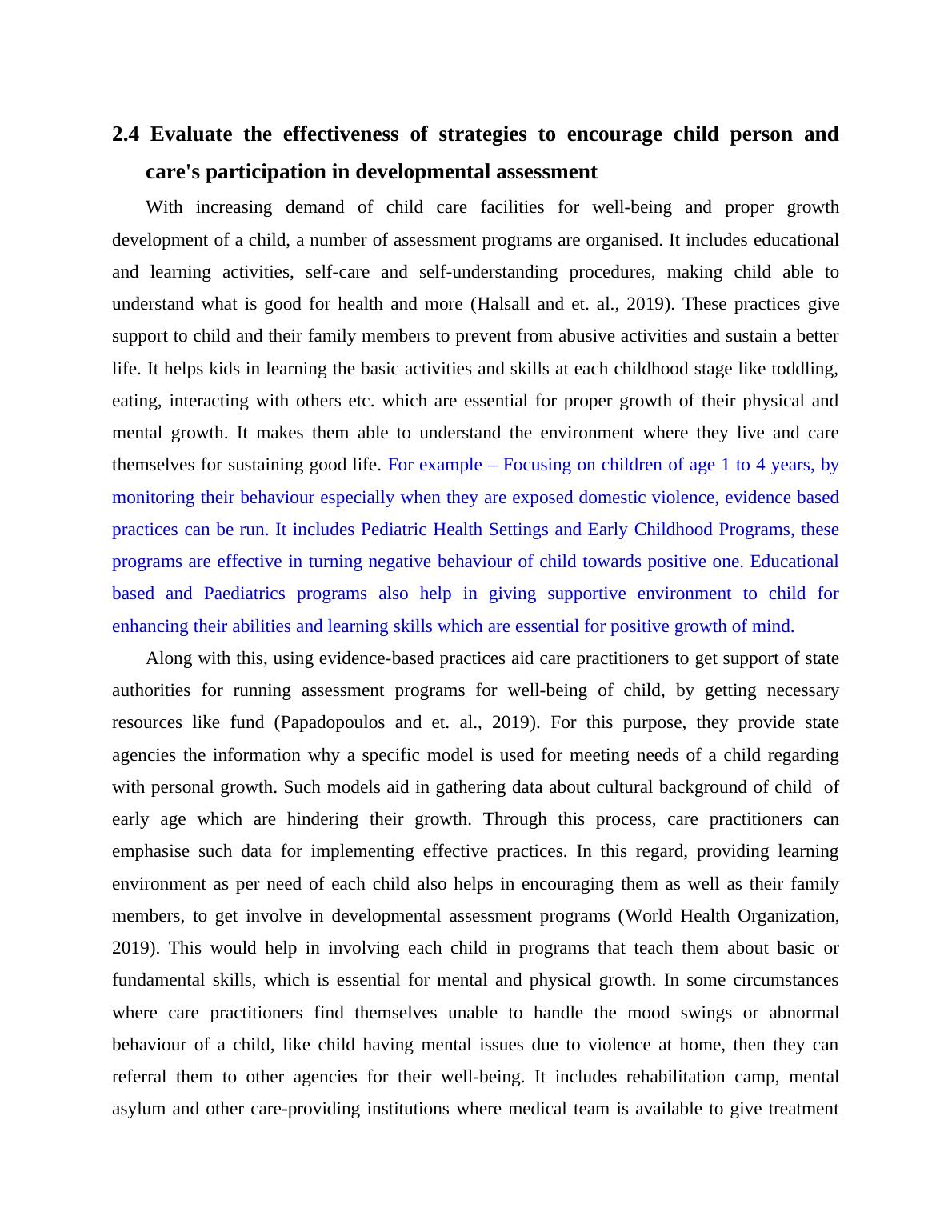Effectiveness of Strategies to Encourage Child Participation in Developmental Assessment
Added on 2023-01-19
2 Pages642 Words43 Views
End of preview
Want to access all the pages? Upload your documents or become a member.
Support Use of Assessments to Develop Programmes of Support
|3
|598
|55
Evidence Based Practice for Supporting Children and Young People in Transitions
|2
|753
|73
Lead the implementation of a personalised programme of support for children or young people
|2
|678
|29
Supporting Child Health and Wellbeing: Factors, Effects, and Strategies
|1
|785
|208
Lead the Implementation of Evidence Based Practice to Support Children or Young People Experiencing Transition
|4
|631
|71
Code of Ethics for Child Educators
|7
|1519
|96
